IN CEMENTO VERITAS

I live in a world that I shape at my liking. I do this through virtual, pictorial, and sculptural movements, transferring my experiences and photographing reality through my mind’s filters. I have refined this process through years of research and experimentation.
Painting for me is my first love. An important, pure love. Creating a painting, starting from the spasmodic research of a concept with which I want to transmit my message this is the foundation of painting for me. The sculpture is my lover, my artistic betrayal to the painting that voluptuous and sensual lover that inspires different emotions which strike prohibited chords.
This new series of concrete sculptures has been giving me more personal and professional satisfaction recently. How was it born? It was the result of an important investigation of my own work. I was looking for that special something I felt was missing.Looking back at my work over the past ten years, I understood that there was a certain semantic and semiotic logic “spoken” by my images, but the right support to valorize their message was not there.
The reinforced cement, the concrete, was created two thousand years ago by the Romans. It tells a millennia-old story, one full of amphitheaters, bridges and roads that have conquered the ancient and modern world. Now, concrete is a synonym of modernity. Everywhere you go, you find a concrete wall: there’s the modern man in there. From Sydney to Vancouver, Oslo to Pretoria, this reinforced cement is present, and it is this presence which supports writers and enables them to express themselves.
The artistic question was an obvious one for me: if man brought art on the streets in order to make it accessible to everyone, why not bring the urban to galleries and museums? With respect to my painting process, when a painting has completely dried off, I brush it with a particular substance that not only manages to unite every color and shade, but also gives my artwork the shininess and lucidity of a poster (like the ones we’ve all had hanging on our walls).
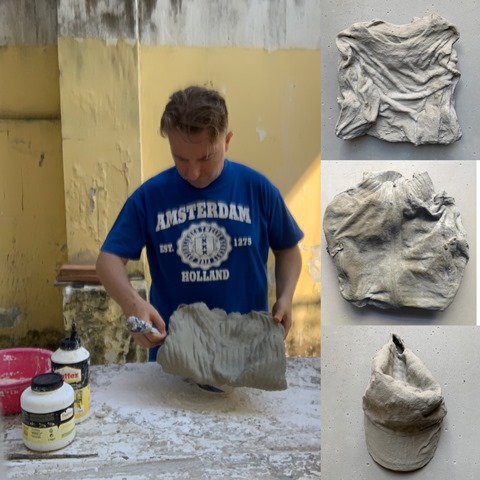
For my concrete sculptures, I use my personal clothing. Through my artistic process in which I use plaster, resin and cement, I transform these articles of clothing into artworks to hang. The intended effect is that my DNA and my memory remain inside the concrete, so that the person who looks at these sculptures is transformed into a type of postmodern archeologist, studying my work as urban artifacts.
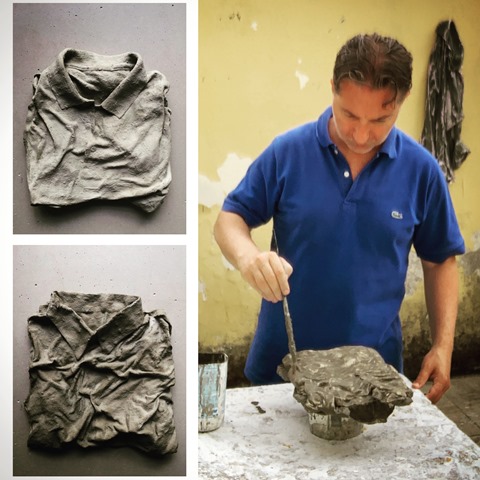
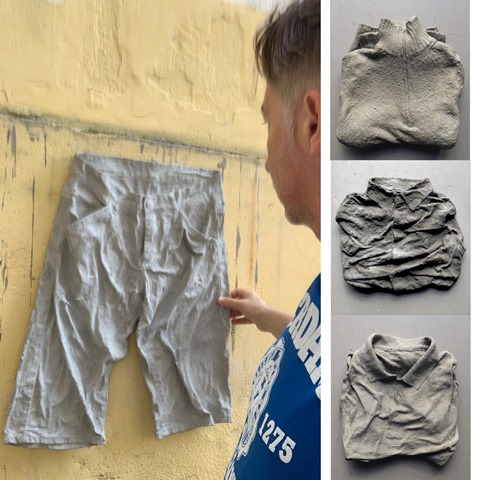
I like to think that those who look at my sculptures created in 2020 will be able to perceive the anguish, the vulnerability, the fear that each of us has felt in front of a planetary problem that was covid 19 … under a layer of cement there are my clothes with which I lived this nefarious period.
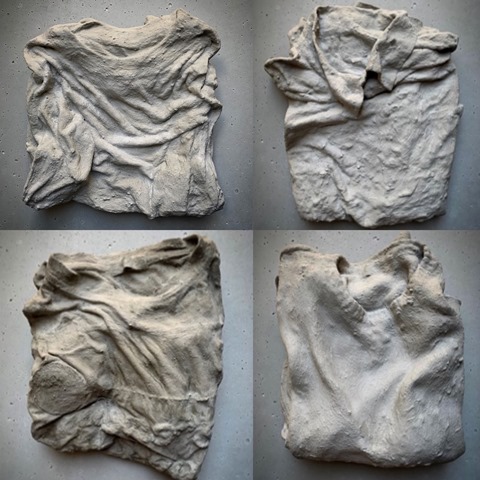
Clothes that survived covid 19, very similar to what survived after the 2,000-year-old catastrophic eruption of Pompeii, capable of recounting man’s inability to face the tragedy of broken lives and destroyed economies.
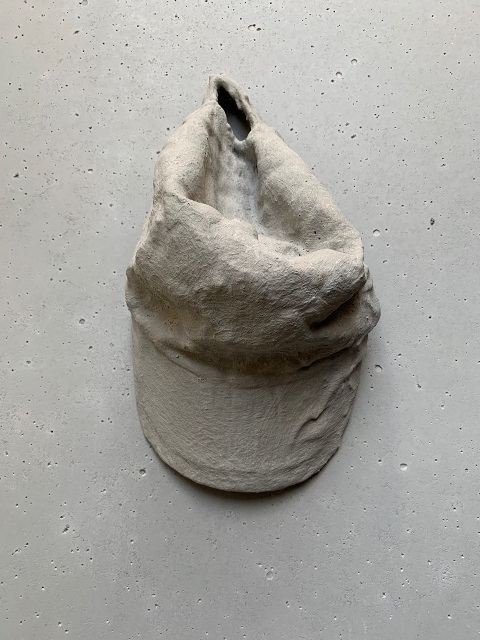
Mario Loprete ,Catanzaro 1968 Graduate at Accademia of Belle Arti , Catanzaro (ITALY)

